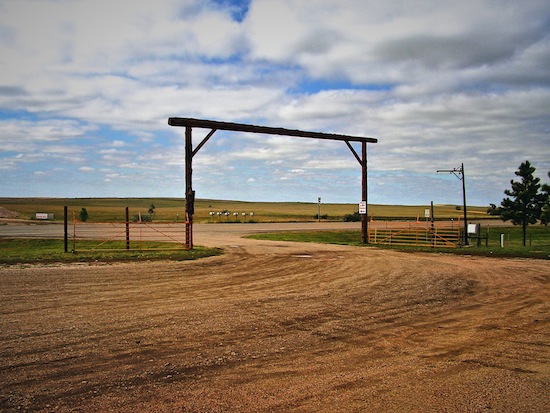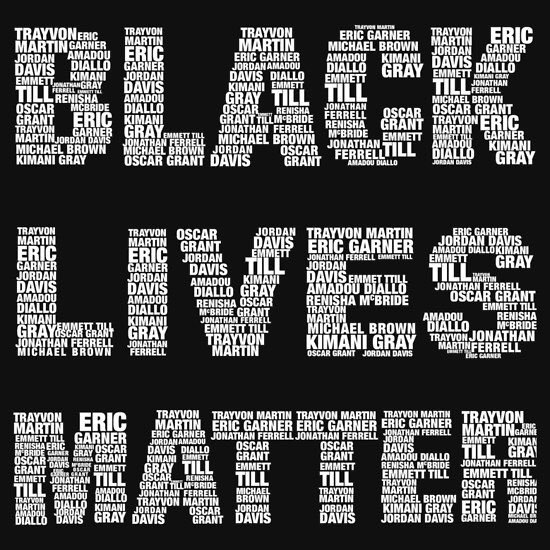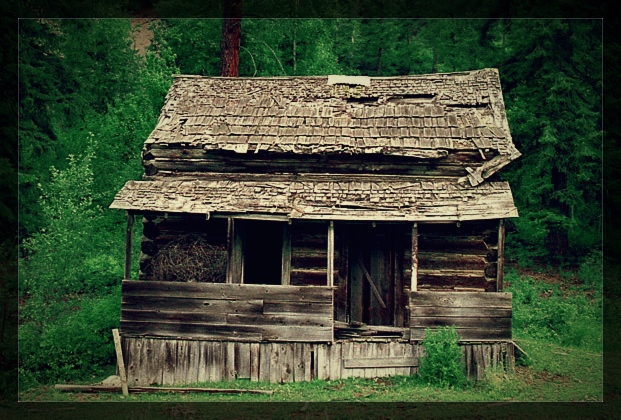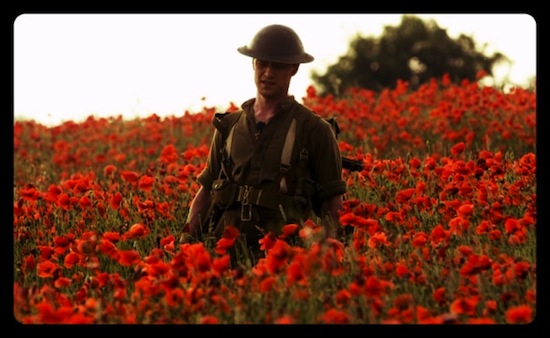 She was instructed to go in there, to slip behind the curtain and give comfort, since the time for medicine had passed.
She was instructed to go in there, to slip behind the curtain and give comfort, since the time for medicine had passed.
"Hold his hand," the matron had urged. "Let him talk. He's an officer, so listen to him. But show no distress."
The sounds—the moans and clacking of heels on tile—seemed to recede as she parted the curtain and entered the partitioned space. Where everything reduced to the leaking devastation of the man's skull. Her urge to weep was immediate and vast, but she kept those tears for the sleepless nights ahead.
How is he even alive? she thought, and she took his cool, rough hands in hers. She marvelled at the sheer human will, or perhaps at the dogged obstinacy of habit.
He was guttering like a votive in some drafty corner of an abandoned church. A flickering torch in a dimming cave.
"When I climbed the hill," he said, fixing her with one eye while the other seemed to look past her, at something awful, "I found the pure white sheets flapping against the brightness of the bluest skies. They were so clean, so fresh, I wanted to cry, but of course I didn't. I thought I might find the women who had hung them there and perhaps marry one if she were so inclined, and had there been time, but all I saw were shadowy lost things drifting between those vast invigorating sails that flapped and billowed like the lungs of God.
"But now it's me who's lost. I tried to follow my mother into the building, but the doors were locked, and when I cleared the dust and grease from a window pane a great dog with a bone-and-gristle head leapt up and frightened me away."
His one good eye kept wandering, as if searching slyly for an exit, only to return and fix on her again, guiltily. The light in the other appeared to have drained entirely away. She made a great effort to quiet the tremors she felt just beneath her skin. She gripped his cool dry hands, half as large again as hers, and forced a smile.
"Did you see my mommy?" he asked, leaning slightly forward.
"No. I didn't see her. I'm sorry."
"Oh." He let the pillows stacked behind his upper torso receive his weight again.
She knew she lacked the words for something like this, so she let them drip unspoken from the ceiling of her mind, form something mineral-hard over eons.
He smiled and something shifted in his head—audibly—and his smile turned briefly to woe.
"I have a feeling my head is such a terrible mess." He whispered this, as if ashamed, as if his presence was an unconscionable cruelty to the attentive young nurse forced to bear witness.
"Perhaps try to recall a quiet time from your home."
"Once, Dorothy and I had an appalling fight and somewhere in Nova Scotia, by the spiteful ocean, I wandered. I found an old chapel. Tiny, it was. And empty, but for a small bent woman hunched over an old pump organ. It was bright in there; all the walls between the icons and crosses were a pleasant summer white and all the wood—frames, trinkets, crosses, pews—was pine blond. I could see the woman was blonde, too, although she wore a loose shawl. The music she played felt incomplete, as if quoting shorter phrases from a longer work. I liked it up to a point, but I could hear the ellipses, the gaps, and I ached to hear the full piece.
"Frustrated, I left, but outside it had grown dark and the landscape seemed to have changed, for I now walked beside the edge of a gloomy wood. Soon the animals came, three, four, five deep, clambering over each other at the forest's margin: raccoons, skunk, foxes, deer, weasels, possum, coyotes, all watching me as if waiting for something…"
"Is this a dream, sir?"
"No, I don't think it is. May I continue?"
"Yes, my apologies."
"So I began to speak to them. I don't think it's all been worth it, I said. All this beauty, all the wonders we've seen and built and worshipped, the taming of the wild places, which will only get worse, all the astounding things we've forged and formed, brought to nothing by our impulse to war on our own kind, and to win those wars at any cost. What an experiment it has been, sublime at its apex but reprehensible at its nadir. Not something necessary and bad, a mere shadow behind the wonders. No, it's all-consuming and there is nothing noble beyond it or behind it, no redemption and no hope.
"Those animals listened to my every word, and when it was clear I was done, some nodded their thanks and they melted back into the gloom of the cedars and the pines, and I heard no more sound from them."
Her own head felt like a doomed airship. She still clasped his hands but had not imparted much warmth to them.
He began to sob quietly and she sat with him in silence. Between sobs he spoke small sad things.
"I wish my mother had never gone into that house, or that she'd looked back at least … one time, I peed off of the side of a dock into a boat and no one saw me, ha-ha … do you love the sounds of a radio, in between the stations? Sounds like planets whispering … you are nice. Will you be able to play with me? I have two toy cars, one a racing car, which I'll let you have, the other a London bus, and we could race them on the sand … the sun is growing in the sky every minute and it's coming for me very soon … how sad, I would have loved to hear more Mozart … I once stood on a glacier the colour of a husky's eyes and heard it cracking under me, miles deep … another time I dreamed I was a poet, but all the words got tangled like kite string and I lost them … did you ever hear the dive of a Stuka? It paralyzes you. It sounds like a demon, an airborne demon, coming for you at last … although the sun, the sun in the end is scarier … did you ever lie on a carpet of bluebells and breathe in spring? If not, you should, and then sing about it to a lover … please tell Mommy I looked for her, will you? Yes, you will, I know. You are kind … the sun is huge now and I can feel it on my skin … I hope it won't hurt too much. Tell her I loved her, tell her about the stalactites and the love, all of it, tell her every…"
He talked and his voice faded slowly, like a lost broadcast. She sat with him a while longer until his cool, rough hands—mechanic's hands, kohl-dark at the creases and the cuticles—finally went cold and stiff. Then she left to find the matron and the doctor.
 David Antrobus Posted on
David Antrobus Posted on  Friday, October 21, 2016 at 8:11PM
Friday, October 21, 2016 at 8:11PM 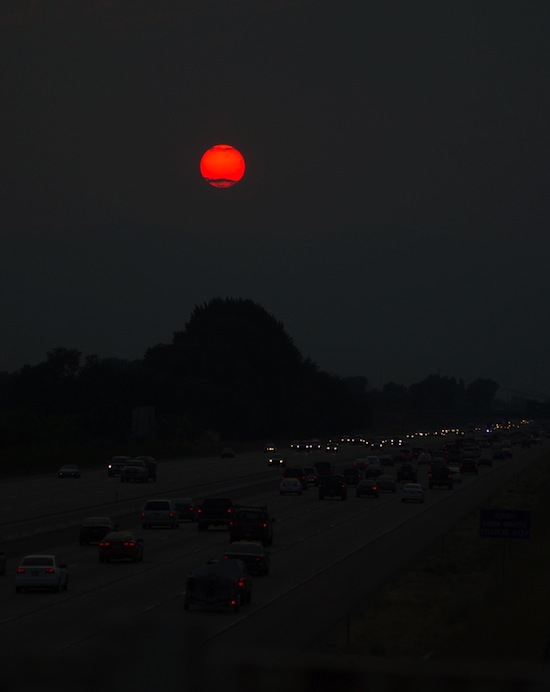 I haven't been to Pasadena, never seen its wide palm-lined streets, or smelled its faint ocean tang braided with exhaust fumes and jasmine, or heard its low night cry of someone preyed upon…
I haven't been to Pasadena, never seen its wide palm-lined streets, or smelled its faint ocean tang braided with exhaust fumes and jasmine, or heard its low night cry of someone preyed upon…





